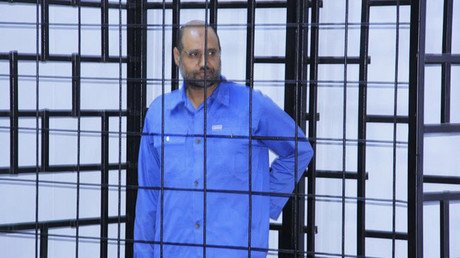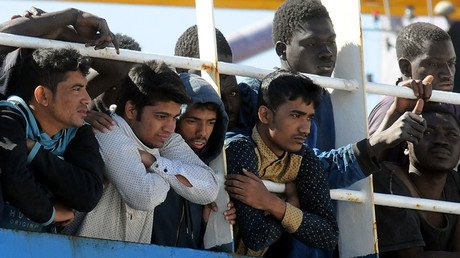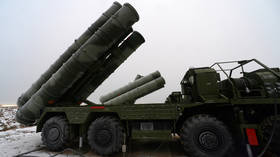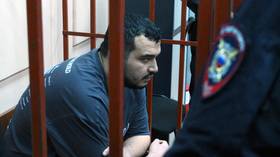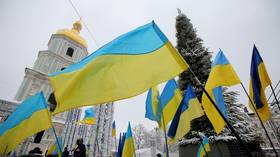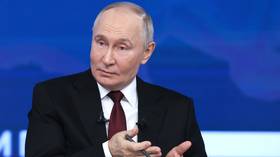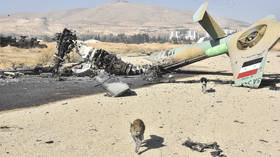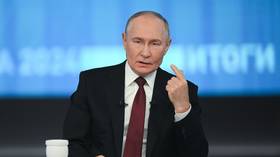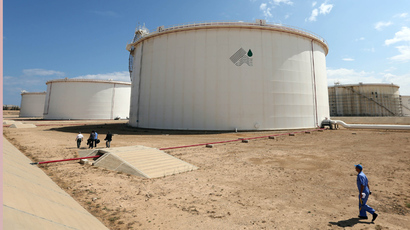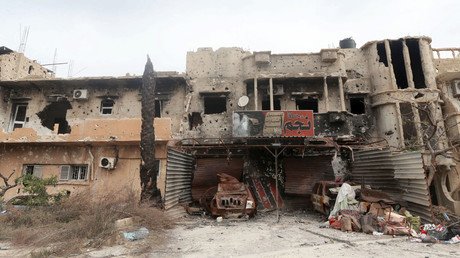Is fractured Libya finally ‘ready for democracy’ almost 7yrs since NATO ‘liberation’? (DEBATE)
Almost 7 years since NATO’s intervention left Libya in shambles, the country’s military strongman says it is still “not yet ready for democracy.” RT’s guests debate whether the UN-backed elections could help unite Libyans.
It took a multi-state NATO coalition seven months to bomb out Libya and topple Muammar Gaddafi after the United Nations Security Council authorized a ‘no-fly zone’ over the country in March, 2011. A power vacuum left after Gaddafi’s murder is still unfilled, with two governments, one in Tobruk and another in Tripoli, and the Libyan National Army led by general Khalifa Haftar, sharing control over the fractured country.
While the UN, which backs the Tripoli-based government of National Accord of Fayez Al-Sirraj, pushes for nationwide elections to be held in the first half of this year, Haftar, who is thought to control roughly half of the country’s territory, says if they fail he will seize power by force to curb violence and restore order.
Abayomi Azikiwe, editor of the Pan-African News Wire, believes the latest UN crusade to bring democracy to the country, wracked with internal problems and torn by different military factions, will prove futile until the UN itself and the countries involved in the military intervention in Libya assume their share of responsibility for the plight they inflicted on Libyans.
“Until those who are culpable for the destruction and the destabilization in Libya and in surrounding countries come to grips with that, there’s not going to be any real solution to the crisis inside the country,” Azikiwe said, noting that up to 100,000 people were killed in the conflict and some two million displaced. Libya has turned into “a source of destabilization” in Africa and “across the Mediterranean into Europe,” he added.
The very attempt by the UN to “reconstruct a political dispensation in Libya” is “ironic,” he said, given it was “very much involved in providing a pseudo legal rationale for the destruction that has been carried out in the country over the last six years.”
Oliver Miles, former UK Ambassador to Libya, agreed it is going to be “very difficult to see Libya as anything but a state of anarchy.” However, he noted that the heavy price paid by Libya – once the wealthiest country on the African continent – to get rid of authoritarian rule was completely warranted.
When asked whether the so far unfulfilled hope for democracy was worth the chaos into which Libya has descended since Gaddafi’s demise, Miles replied: “Yes, it was,” arguing “the alternative would have been to let Gaddafi commit an act of genocide against his own people.”
According to Azikiwe, it is the Western coalition that dropped “ten thousand bombs” on Libya which is to be blamed for the “real genocide” of the Libyan population, not Gaddafi. “The notion that the previous government was going to engage in atrocities is unsubstantiated,” he stressed.
The journalist believes it is “an open question” whether Libya is ready for the elections. In any case, it will be “very difficult” for the UN to help remake what it allowed to destroy. Azikiwe went to point out that the mere fact the Tripoli government receives backing from the UN does not mean it enjoys the same support from the people.
“The United Nations has attempted to set up a government of National Accord and is not even recognized by the majority of people in Libya themselves,” he said.
While Miles told RT he has “no reason to doubt that [Libyan people] want something like a democratic state,” he also believes that under the present circumstance the UN-sponsored elections will not likely serve the goal of uniting Libyans, but rather will lead to even more instability.
“The danger is that if election were held today or without preparation, the result would be that instead of Libya having two assemblies and three governments, which is the position of the moment, it will have three assemblies and four governments,” he said. “Nobody wants that.”
